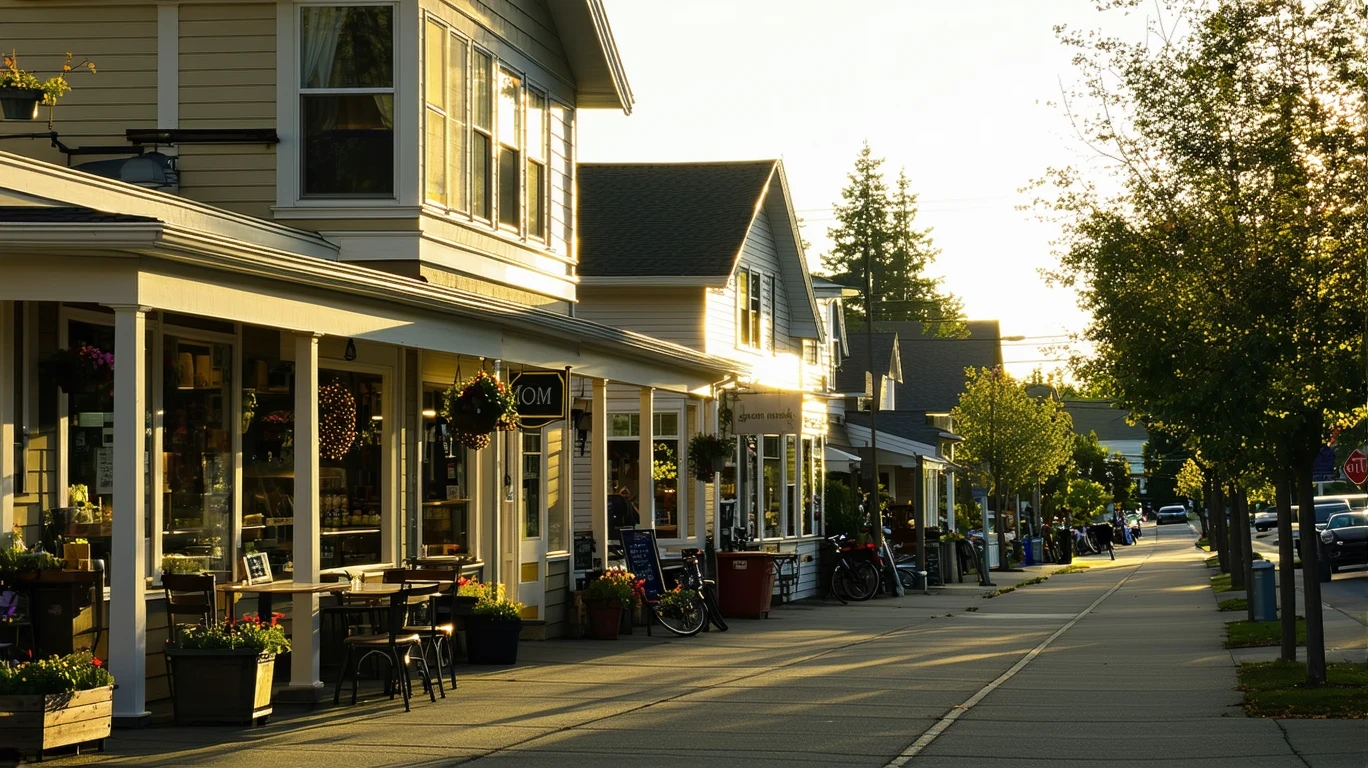Wilsonville is considered moderately expensive in 2025, with average rent for a 2-bedroom apartment around $1,900 and slightly higher grocery costs compared to the national average.

Housing Costs in Wilsonville
Housing is the biggest expense for most Wilsonville residents. Typical rental options in the city include apartments, townhomes, and single-family houses. Prices vary based on neighborhood, property type, and amenities.
For a 2-bedroom apartment in Wilsonville, renters can expect to pay between $1,700 and $2,100 per month. Townhomes and single-family rental homes with 3 bedrooms generally fall in the $2,200 to $2,800 range. Many newer developments include community amenities like pools, fitness centers, and walking paths, which can drive up costs.
Homebuyers in Wilsonville face a competitive market, with median prices for a 3-bedroom house around $550,000 as of 2025. Popular neighborhoods like Charbonneau and Villebois tend to have higher price points due to their amenities and convenient locations. HOA fees are common in many Wilsonville communities, adding $200-400 to monthly housing costs for owners.
Utilities and Energy Bills
Utility costs in Wilsonville are slightly higher than the national average. Residents can expect the following monthly costs for an 1,000 sq ft apartment:
- Electricity: $110-130
- Natural gas: $40-60
- Water/sewer/trash: $90-110
- Internet: $60-80
Energy bills tend to be highest in the summer months when air conditioning drives up electricity usage. Choosing an energy-efficient rental and being mindful of thermostat settings can help control utility expenses.
Groceries and Daily Expenses
Grocery costs in Wilsonville are about 5% higher than the national average. A single person can expect to spend around $350-400 per month on groceries, while a family of four may pay closer to $1,000-1,200.
Here are some typical prices for everyday items in Wilsonville:
- Gallon of milk: $3.50
- Loaf of bread: $3.00
- Dozen eggs: $2.75
- Pound of chicken breast: $4.50
Dining out will add to monthly expenses, with a meal at a mid-range restaurant averaging $15-20 per person. Cooking most meals at home is one way to manage food costs on a tight budget.
Taxes and Fees
Wilsonville residents pay a property tax rate of $14.50 per $1,000 of assessed home value. For a house assessed at $400,000, annual property taxes would be approximately $5,800 or $483 per month.
Oregon has no sales tax, which can help offset other living costs. However, the state does have an income tax, with rates ranging from 5-9.9% depending on income level.
Vehicle registration fees in Wilsonville are $112 for a two-year renewal, not including any county or local fees. Drivers should also budget for car insurance, gas, and regular maintenance costs.
Monthly Budget Summary
| Expense | Single Person | Couple | Family of 4 |
|---|---|---|---|
| Housing (rent) | $1,400 | $1,900 | $2,500 |
| Utilities | $200 | $280 | $400 |
| Groceries | $400 | $650 | $1,100 |
| Transportation | $300 | $400 | $600 |
| Healthcare | $250 | $500 | $800 |
| Other | $450 | $600 | $800 |
| Total | $3,000 | $4,330 | $6,200 |
These figures reflect estimated gross monthly income (pre-tax) needed to maintain a comfortable standard of living in Wilsonville. Individuals can adjust these numbers based on their lifestyle, family size, and housing choices.
Lifestyle Considerations
While Wilsonville is not the cheapest Portland suburb, many residents find the quality of life worth the extra expense. The city boasts excellent schools, abundant parks and green spaces, and convenient access to shopping and dining.
Commuters may face traffic heading into Portland during peak times, but Wilsonville’s location near I-5 and I-205 makes it a convenient home base for those working in the metro area. The WES Commuter Rail also provides a public transit option to Beaverton.
Newer housing developments on the edges of Wilsonville often come with higher price tags but more modern amenities. Those willing to consider older homes or apartments closer to the town center may find more budget-friendly options, with the tradeoff of less square footage and fewer upgrades.
Frequently Asked Questions
What salary do you need to live in Wilsonville?
To comfortably afford a 2-bedroom apartment and other living expenses, an individual or couple would need to earn a gross monthly income of at least $4,200-4,500 (or $50,400-54,000 per year).
How does the cost of living in Wilsonville compare to Portland?
Wilsonville is slightly less expensive than Portland proper, with lower housing costs being the primary difference. However, Wilsonville is still above the national average for expenses like groceries and utilities.
Are there any affordable neighborhoods in Wilsonville?
Neighborhoods like Frog Pond and Advance at the north end of Wilsonville tend to have lower housing costs. Renting an apartment versus a single-family home can also make living in Wilsonville more attainable.
What are the top 3 costs that surprise people moving to Wilsonville?
- Higher-than-average utility bills, especially electricity in the summer
- Property taxes, which can add hundreds to monthly housing costs
- The competitive rental market, which makes budget-friendly housing harder to secure
How can I reduce my expenses in Wilsonville?
Choosing a smaller rental, cooking meals at home, and using public transit or walking/biking for some trips can all help trim costs. It’s also a good idea to shop around for the best rates on recurring bills like car insurance and internet service.
What’s the job market like in Wilsonville?
Wilsonville has a strong economy with major employers in manufacturing, technology, and healthcare. The city’s unemployment rate is typically lower than the national average. However, many residents commute to Portland or other nearby cities for work.
Moving to a new city is a big decision. With careful planning and budgeting, Wilsonville can be a great place to call home for those who value its location, amenities, and community feel. Working with experienced moving companies can also help the relocation process go smoothly.
